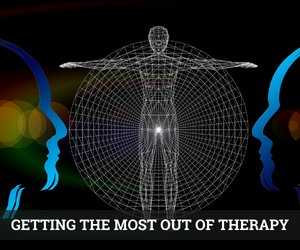
If you are like most people, you go to therapy to improve your mental health. However, there is so much more than therapy can offer you if you know how to get the most out of it. In this article, I will discuss some Tips For Getting The Most Out Of Therapy on how to get the most out of your therapy practice.
In order to get the most out of your therapy practice, it is important to be an active participant in your sessions. Here are a few tips on lively activity sensors for living independently and how to get the most out of therapy:
1. Come prepared. Bring a list of questions or concerns you would like to discuss with your therapist.
2. Be honest and open. Your therapist can only help you if they have all the information they need.
Contents
Our Savings For Exercise accessories [DEALs]
Tips For Getting The Most Out Of Therapy? What is therapy?
Therapy is a process that can help people work through their problems and improve their mental health. Be honest with your therapist. If there are things you’re not comfortable discussing, let them know. But also be willing to talk about anything that’s on your mind. The more open you are, the better chance you have of making progress.
Top7 Benefits Of Therapy Practice
Follow your therapist’s instructions. If they tell you to do something, do it! They’re not trying to be bossy, they’re trying to help you get better. Be patient. Therapy is a process that takes time. Don’t expect to solve all your problems in one session.
1. Reducing stress
Therapy isn’t just for people with mental health conditions. In fact, therapy can offer a range of benefits to anyone who participates in it.
For example, therapy can help reduce stress levels. This is because it allows people to talk about their problems and concerns in a safe and supportive environment. Additionally, therapy can help people learn how to cope with stress in healthy ways.
2. Improving communication
There are many benefits to therapy practice. One of the most important is that it can help improve communication. In a therapy session, both the therapist and client have an opportunity to talk openly about what is going on in their lives. This can help people to understand themselves and their relationships better.
Therapy can also help people to develop better coping skills for dealing with difficult situations.
3. Developing self-awareness
Therapy can offer many benefits, including developing self-awareness. This is because, in therapy, individuals are able to explore their thoughts, feelings, and behaviors in a safe and supportive environment.
As they do this, they may begin to see patterns that they were not aware of before. This can be helpful in understanding why they react the way they do in certain situations and how they can change these reactions. In addition, therapy can help individuals learn new coping skills and ways to deal with stressors.
4. Processing emotions
Therapy is a great way to process emotions in a healthy and productive way. By talking about what’s going on in our lives with a therapist, we can begin to understand why we’re feeling the way we are and start working through those emotions. This can lead to improved mental health, increased self-awareness, and reduced stress levels.
Therapy can also be beneficial for physical health. When we’re able to process our emotions, it can lead to less inflammation in the body, as well as lower blood pressure and heart rate.
5. Enhancing mental health
Therapy can be an incredibly useful tool for enhancing mental health. By working with a therapist, individuals can gain insight into their thoughts and behaviors, learn new coping mechanisms, and find relief from distress. Additionally, bunion surgery or therapy can help improve relationships and overall functioning in life.
6. Strengthening relationships
Therapy can be an extremely beneficial tool for individuals, couples, and families. It can help to strengthen relationships, improve communication, and resolve conflicts. In addition, therapy can provide support during difficult times and help individuals to cope with stress and anxiety.
7. Establish Goals
Establishing goals for your therapy practice is essential to getting the most out of your sessions. Without specific goals, it can be difficult to determine if you are making progress.
There are a number of different factors to consider when establishing goals for Maple Tree Counselling Central Hong Kong Therapy Practice. Some of the key considerations include the reason you are seeking therapy, your personal strengths and weaknesses, and the areas you would like to see improvement in.
It is also important to be realistic when establishing goals for therapy. Unrealistic expectations can lead to frustration and a feeling that therapy is not working.
Once you have established your goals, make sure to communicate them to your therapist. This will help them better understand what you are hoping to achieve and how they can best help you meet your goals.
What to expect in therapy?
Therapy can be a great way to address issues that are causing distress in your life. It can also be a place to gain support and insight from a therapist who is trained to listen attentively and help you explore your thoughts and feelings. During therapy sessions, you can expect to talk about what’s going on in your life and how it’s affecting you.
Conclusion
In conclusion, by following the advice provided in this article, you can make sure that you get the most out of your therapy practice. This will allow you to obtain the best possible results from your sessions and improve your overall mental health.
Remember, therapy is a process, and it may take some time before you see results. But by being persistent and working hard, you can get to the root of your problems and start living a healthier and happier life.